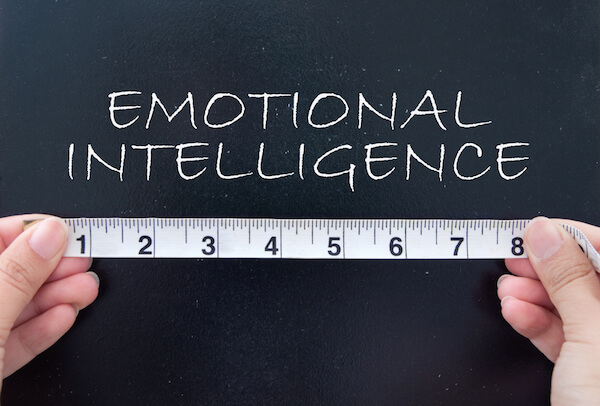Hoy en día, es importante tener en cuenta que padres, madres y educadores tenemos un desafío por delante: cuidar y trabajar las habilidades socioemocionales en bebés y niños.
Las emociones son una reacción física y psicológica a diversas situaciones o estímulos que percibe el ser humano y que tiene que ver con los procesos cognitivos. Ante una determinada persona, un hecho, un recuerdo conmovedor, una situación o ubicación, mostramos una respuesta biológica y fisiológica que expresamos mediante el lenguaje corporal y verbal.
A las niñas y niños hemos de enseñarles las emociones de forma pedagógica, con naturalidad y calma, hablándoles con un lenguaje asimilable y comprensible acorde a su edad. Las habilidades socioemocionales son parte del llamado “currículo oculto” de los centros educativos y del día a día de las familias.
Con trabajo educativo, los pequeños podrán reconocer qué están sintiendo e identificar y gestionar estas emociones. A un mayor autoconocimiento, una mejor gestión de las emociones. El autoconcepto y el autocontrol son dos términos básicos para que nuestros niños puedan crecer de una forma sana psicológicamente hablando.
Compartir nuestras propias emociones con los más pequeños, y estimularles para identificar y comprender las suyas, les ayudará a controlarlas en su incursión social y posterior evolución personal.

El núcleo familiar, independientemente de su forma, es básico e importante en esta tarea. Estas serán las personas encargadas de enseñar las habilidades en el entorno más íntimo del infante, creando un ambiente de afecto, apego y aprendizaje. Luego, conforme los niños y niñas crecen, el radio de acción se va ampliando y entran en escena otros actores sociales como su grupo de iguales, las maestras y maestros de la escuela o los familiares más cercanos.
Debemos avivar la inteligencia emocional y estimular las habilidades asociadas a ellas. Estas se van aprendiendo de forma progresiva, sin urgencia. Cada niño tiene un ritmo diferente. Para aprenderlas existen multitud de recursos psicopedagógicos, que ahora con Internet están más al alcance que nunca: dinámicas grupales, fichas, libros, vídeos (cortometrajes y dibujos animados), asesoramiento profesional, etc. Pero el verdadero motor de las habilidades socioemocionales en bebés y niños es pasar tiempo con ellos y que sea de calidad.
La realidad actual es compleja y poliédrica; vivimos en un mundo sobre informado, con multitud de estímulos, en el que las tecnologías ocupan mucho de nuestro tiempo y espacio, y en el que la sociedad evoluciona constantemente. Un escenario abrumador en el que los niños y niñas demandan una guía constante en su desarrollo. Padres, madres y tutores debemos acompañarlos en su evolución.
La comunicación: elemento clave
La comunicación es fundamental y debemos trabajarla cada día. Debemos expresarnos bien para que ellos también puedan hacerlo. Escuchar, comprender e interactuar a través de los diversos procesos. Vamos a analizarlos:
La imitación
Es una habilidad innata. El pequeño desarrolla desde que es bebé esa empatía y activa los mecanismos de repetición de las acciones. Esto hace que puedan desarrollarse en su entorno e ir adquiriendo nuevas habilidades, tanto físicas como psicológicas. Conforme van creciendo y comprendiendo, las figuras paternas o los tutores deben ser todavía más ejemplares, por eso debemos cuidar al máximo qué hacemos delante de nuestros pequeños. La educación en valores es esencial.
La acción instruccional
Los más pequeños asumen e interiorizan órdenes de los adultos, normalmente de las figuras más cercanas y familiares. Pero ojo, estos mandatos deben ser razonados. Los niños han de comprender porqué hacemos cada cosa, todo tiene un sentido y una explicación. Si vamos a dormir es porque necesitan descansar para ir al día siguiente a la guardería o la escuela, si vamos a comer es porque hay que alimentarse para tener fuerzas, si vamos a pasear es para ver cosas y divertirnos, etc.
La observación
Observar es una acción que realizan los niños prácticamente en todo momento, base de la imitación, pero también es un recurso pedagógico para los padres y tutores. Cada niño es diferente y tiene unas características, necesidades y anhelos distintos. Observándolos vamos a comprobar el nivel cognitivo de cada niño, su desarrollo social, sus reacciones, su nivel de psicomotricidad, etc.
¿Qué habilidades socioemocionales pueden trabajarse?
Las habilidades de interacción son aquellas que les enseñamos para que se relacionen, en primeras instancias, con las demás personas. Nos referimos al saludo, a que el niño diga como se llama, a presentarse, a saber pedir algo, a expresar qué desea, etc. Son acciones muy básicas, elementales para los chicos y chicas de edades más tempranas. Hay profesionales que usan pictogramas para trabajar estas habilidades.
Por otro lado, encontramos las habilidades con el grupo de iguales, que van un pasito más allá. Se trata de acciones algo más complejas como iniciar una conversación, unirse al juego, saber ayudar y compartir o pedir cosas por favor. Que los chicos se sepan expresar va a hacer más sencilla su socialización.

Las habilidades emocionales tiene un carácter más abstracto y la irán comprendiendo conforme se vayan conociendo. Podemos trabajar con los niños los sentimientos positivos, la recepción de las emociones ajenas, el respeto, el orden, los afectos, etc.
Estos tres tipos de habilidades a menudo se entrecruzan, tienen carácter transversal y flexible. Simplemente debemos trabajarla en cada etapa del niño, diariamente, con tesón, paciencia y conocimientos pedagógicos. Es aconsejable instruirnos. La adaptación de los niños y niñas a su entorno dependen del desarrollo de sus habilidades socioemocionales.

